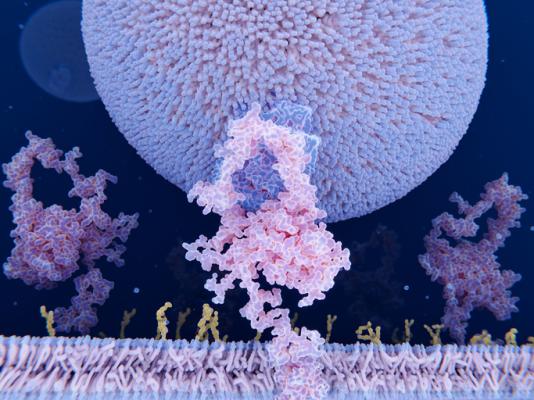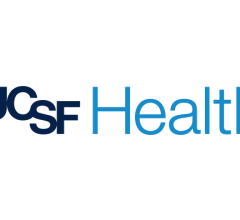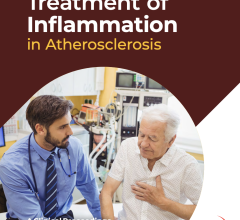
Data presented today byAstraZeneca, at the European Atherosclerosis Society (EAS) Congress in France,on AZD0780, an oral PCSK9 inhibitor demonstrated significant LDL-C reduction on top of statin in Phase I trial. Positive results from a Phase I trial of AZD0780, an oral small molecule PCSK9 inhibitor administered on top of statin treatment, were presented at the European Atherosclerosis Society 92nd Congress, ESC 2024, held May 26-29 in Lyon, France. Image courtesy: Getty Images
May 29, 2024 — Data was presented by AstraZeneca on AZD0780, an oral PCSK9 inhibitor which demonstrated significant LDL-C reduction on top of statin in Phase I trial. Positive results from a Phase I trial of AZD0780, an oral small molecule PCSK9 inhibitor administered on top of statin treatment, were presented at the European Atherosclerosis Society (EAS), EAS Congress 2024, which was held May 26-29 in Lyon, France.1
Key highlights from the trial, as provided in a written summary on the data, include:
- When combined with rosuvastatin, AZD0780 30 mg reduced LDL-C by 52%, representing a total reduction of 78% from baseline.
- Preliminary data comparing dosing with food versus fasting indicates dosing flexibility with regard to food.
- No serious adverse events were reported and AZD0780 was well tolerated.
- As an oral medication, AZD0780 offers a convenient alternative to injectable biologics, potentially improving patient adherence and reducing the need for special handling or cold storage.
- Despite current treatment options, the global burden of dyslipidaemia is on the rise. More than 70% of patients with atherosclerotic cardiovascular disease (ASCVD) are still not achieving their LDL-C target, so there remains a vast unmet need among high-risk patients for more varied and effective treatment options.
AZD0780 demonstrated a statistically significant reduction of 52% (95%CI: -57, -45) in LDL-C levels on top of rosuvastatin treatment, with 78% total reduction from baseline, in treatment-naive participants with hypercholesterolaemia.1
The trial assessed the safety, tolerability, pharmacokinetics, and pharmacodynamics of AZD0780 in lowering low-density lipoprotein cholesterol (LDL-C) in plasma when administered as monotherapy and in combination with rosuvastatin.1
Preliminary data comparing dosing with food versus fasting indicates dosing flexibility with regard to food.1 No serious adverse events were reported and AZD0780 was well tolerated.1
AZD0780 progressed into Phase II trials in patients with dyslipidaemia earlier this year.2
Sharon Barr, Executive Vice President, BioPharmaceuticals R&D at Cambridge, UK-based AstraZeneca, said: “The role of PCSK9 in cholesterol management is well established, and the compelling data generated with AZD0780 demonstrate the potential of this molecule for effective inhibition of this target and a possible next generation treatment for people with cardiovascular disease. AZD0780 inhibits PCSK9 via a novel, previously unexplored, mode of action that is compatible with traditional oral small molecule drug discovery. We are progressing development of AZD0780 as an innovative, convenient oral option for patients who are currently unable to meet their LDL-C targets with statins alone to reduce their risk of CV events.”
Elevated LDL-C levels in plasma is a key risk factor for cardiovascular disease and is estimated to cause 2.6 million deaths worldwide annually.3 Despite current treatment options, the global burden of dyslipidaemia is on the rise.4 More than 70% of patients with atherosclerotic cardiovascular disease (ASCVD) are still not achieving their LDL-C target, so there remains a vast unmet need among high risk patients for more varied and effective treatment options;5-6 achieving >70% LDL-C reduction could equate to >90% patients achieving LDL-C target levels according to guidelines.1,7
Additional AZD0780 Trial Details
AZD0780 is an oral, small molecule PCSK9 inhibitor that is being developed by AstraZeneca as a first-in-class therapy for patients with dyslipidaemia which cannot be controlled by statins alone.1 PSCK9 is a well-known and validated target in lipid metabolism and inhibiting PSCK9 signalling has shown to be effective in reducing LDL cholesterol levels in plasma.8 Lower LDL-C levels are associated with a reduction in the risk of long-term cardiovascular disease and major cardiovascular events.3
The Phase I trial included participants receiving AZD0780 30 mg or 60 mg daily versus placebo (n=15 for each arm) for four weeks. An additional arm including 35 participants with hypercholesterolaemia (LDL-C >100 mg/dL to 190 mg/dL) received rosuvastatin 20 mg for three weeks followed by AZD0780 30 mg or placebo for four weeks.1
More information: www.astrazeneca.com
References:
1 Vega RB, et al. AZD0780, the first oral small molecule PCSK9 inhibitor for the treatment of hypercholesterolemia: Results from a randomized, single-blind, placebo-controlled phase 1 trial European Atherosclerosis Society Congress; May 26-29; Lyon, France 2024.
2 ClinicalTrials.gov. A Study to Assess the Efficacy, Safety and Tolerability of Different Doses of AZD0780 in Patients With Dyslipidemia (PURSUIT) [Available from: https://clinicaltrials.gov/study/NCT06173570?rank=1.
3 World Health Organization (WHO) [Internet]. Raised cholesterol; [cited 2024 May 15. Available from: https://www.who.int/data/gho/indicator-metadata-registry/imr-details/3236.
4 Pirillo A, et al. Global epidemiology of dyslipidaemias. Nat Rev Cardiol. 2021;18(10):689-700.
5 Cannon CP, et al. Use of Lipid-Lowering Therapies Over 2 Years in GOULD, a Registry of Patients With Atherosclerotic Cardiovascular Disease in the US. JAMA Cardiol. 2021;6(9):1-9.
6 Krahenbuhl S, et al. Unmet Needs in LDL-C Lowering: When Statins Won't Do! Drugs. 2016;76(12):1175-90.
7 Allahyari A, et al. Low-density lipoprotein-cholesterol target attainment according to the 2011 and 2016 ESC/EAS dyslipidaemia guidelines in patients with a recent myocardial infarction: nationwide cohort study, 2013-17. Eur Heart J Qual Care Clin Outcomes. 2021;7(1):59-67. doi:10.1093/ehjqcco/qcaa016
8 Rosenson RS, et al. The Evolving Future of PCSK9 Inhibitors. J Am Coll Cardiol. 2018;72(3):314-29.


 February 04, 2026
February 04, 2026 









